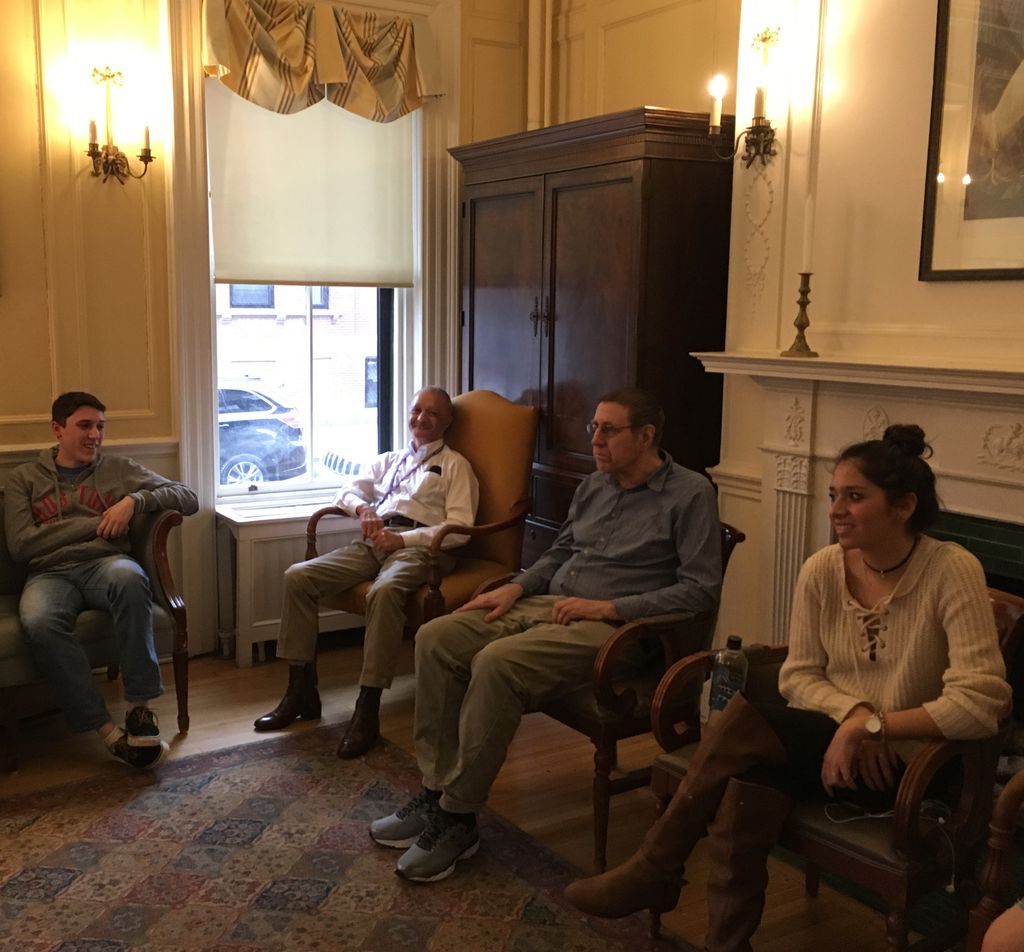Using Service Learning to Connect Students to Communities
The Boston University Hub—a new BU-wide general education program—aims to help students navigate an increasingly complex and interconnected world. One capacity students will develop through their Hub education: the ability to live and work in communities.
For one Hub unit—the Individual in Community—students will analyze the experiences that inform their own worldviews and beliefs, participate respectfully in different communities, and reflect on the issues relevant to their communities. One excellent way for faculty to help students fulfill this requirements: design a class that incorporates service learning. Through service learning, students engage with a new community and reflect on what they’ve learned from that experience.
CGS Lecturer of Humanities Sheila Cordner has been partnering with the Boston University Center for Teaching and Learning (CTL) to develop resources that will help faculty integrate service learning into their classes—particularly Hub-approved classes that fulfill the Individual in Community requirement.

The National Youth Leadership Council defines service learning as “an approach to teaching and learning in which students use academic knowledge and skills to address genuine community needs.” For the past nine years, Cordner has integrated service learning into her own humanities classes. Students have packed books to mail to incarcerated people, discussed Charles Dickens with residents in an assisted living facility, and talked about impressionist art with people learning English at the Boston Public Library. Students also have to assess themselves and reflect on the experience—an important component of service learning—and they say that the projects deepen their own connection to the humanities and the course material.
Cordner and CTL’s service learning guide introduces faculty to the background and benefits of service learning, and it also helps them structure their service learning assignments in a way that invites reflection. In the guide to the Individual in Community Hub requirement, Cordner and CTL tie service learning to the Hub outcomes and give specific resources to help faculty design courses that achieve those outcomes.
In May, Cordner also coordinated a panel on “Individual in Community” for CTL’s Educational Innovation Conference. BU College of Arts and Sciences Associate Professor William Huntting Howell and BU College of Fine Arts Assistant Professor Diana Dansereau joined Cordner in sharing their own experiences with developing and teaching courses that incorporate community-based assignments and service learning. Boston University Community Service Center Zachary Hobbs encouraged faculty to use the Community Service Center as a resource for implementing service learning.